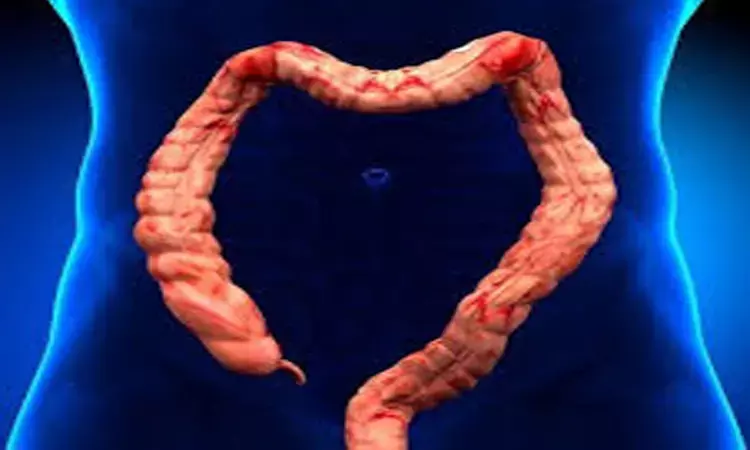- Home
- Medical news & Guidelines
- Anesthesiology
- Cardiology and CTVS
- Critical Care
- Dentistry
- Dermatology
- Diabetes and Endocrinology
- ENT
- Gastroenterology
- Medicine
- Nephrology
- Neurology
- Obstretics-Gynaecology
- Oncology
- Ophthalmology
- Orthopaedics
- Pediatrics-Neonatology
- Psychiatry
- Pulmonology
- Radiology
- Surgery
- Urology
- Laboratory Medicine
- Diet
- Nursing
- Paramedical
- Physiotherapy
- Health news
- Fact Check
- Bone Health Fact Check
- Brain Health Fact Check
- Cancer Related Fact Check
- Child Care Fact Check
- Dental and oral health fact check
- Diabetes and metabolic health fact check
- Diet and Nutrition Fact Check
- Eye and ENT Care Fact Check
- Fitness fact check
- Gut health fact check
- Heart health fact check
- Kidney health fact check
- Medical education fact check
- Men's health fact check
- Respiratory fact check
- Skin and hair care fact check
- Vaccine and Immunization fact check
- Women's health fact check
- AYUSH
- State News
- Andaman and Nicobar Islands
- Andhra Pradesh
- Arunachal Pradesh
- Assam
- Bihar
- Chandigarh
- Chattisgarh
- Dadra and Nagar Haveli
- Daman and Diu
- Delhi
- Goa
- Gujarat
- Haryana
- Himachal Pradesh
- Jammu & Kashmir
- Jharkhand
- Karnataka
- Kerala
- Ladakh
- Lakshadweep
- Madhya Pradesh
- Maharashtra
- Manipur
- Meghalaya
- Mizoram
- Nagaland
- Odisha
- Puducherry
- Punjab
- Rajasthan
- Sikkim
- Tamil Nadu
- Telangana
- Tripura
- Uttar Pradesh
- Uttrakhand
- West Bengal
- Medical Education
- Industry
Can Prebiotics Help Protect Against Immunotherapy-Induced Colitis?

Prebiotics are an intriguing potential approach to curbing some of the severe side effects that life-saving immunotherapy treatments can wreak on the gut, according to an analysis of recent studies and clinical trials by researchers at the University of Michigan Rogel Cancer Center.
Rather than trying to introduce beneficial strains of bacteria directly into a patient's digestive tract — via fecal transplant, enema or probiotic supplements, each of which have drawbacks — evidence points to prebiotics as a potentially safe and effective strategy. This would mean giving patients foods that are known to stimulate the growth of certain bacteria that can, in turn, produce larger amounts of protective metabolites.
"There are several advantages to a prebiotic approach," says hematology/oncology fellow Amy Chang, M.D., the lead author of a recent article on the topic in Trends in Cancer. "Compared to other methods, they're easy to administer, safe and inexpensive. One study showed that oat bran, for example, increased production of a metabolite called butyrate and resulted in improved symptoms for patients with bowel ailments similar to those seen in patients receiving immunotherapy."
Immune checkpoint inhibitors have emerged as a significant advance against a variety of cancer types. But severe side effects — especially inflammation and organ damage caused by the amplification of the body's immune response — can force treatments to be discontinued.
The researchers' review of existing studies and clinical trials raised the possibility that butyrate-promoting prebiotics may help reduce immunotherapy-induced inflammation in the colon, and might even be able to improve the effectiveness of the therapy by increasing patients' tolerance to it through the promotion of beneficial microbes.
The article builds on other research at U-M, including an ongoing clinical trial to explore whether butyrate can help reduce rates of acute graft-versus-host-disease of the intestine, a serious complication of bone marrow transplantation.
"The evidence that exists is compelling, and we believe well-designed clinical trials could help us evaluate the potential of prebiotics to improve outcomes for cancer patients treated with immune checkpoint inhibitors," says Chang, who worked closely with senior study authors Christopher Lao, M.D., M.P.H. and Muneesh Tewari, M.D., Ph.D., both of whom are members of the Rogel Cancer Center.
The researchers are preparing to open a pilot clinical trial to test a prebiotic dietary supplement in patients receiving immunotherapy.
https://www.sciencedirect.com/science/article/abs/pii/S2405803321000601
Hina Zahid Joined Medical Dialogue in 2017 with a passion to work as a Reporter. She coordinates with various national and international journals and association and covers all the stories related to Medical guidelines, Medical Journals, rare medical surgeries as well as all the updates in the medical field. Email: editorial@medicaldialogues.in. Contact no. 011-43720751
Dr Kamal Kant Kohli-MBBS, DTCD- a chest specialist with more than 30 years of practice and a flair for writing clinical articles, Dr Kamal Kant Kohli joined Medical Dialogues as a Chief Editor of Medical News. Besides writing articles, as an editor, he proofreads and verifies all the medical content published on Medical Dialogues including those coming from journals, studies,medical conferences,guidelines etc. Email: drkohli@medicaldialogues.in. Contact no. 011-43720751


